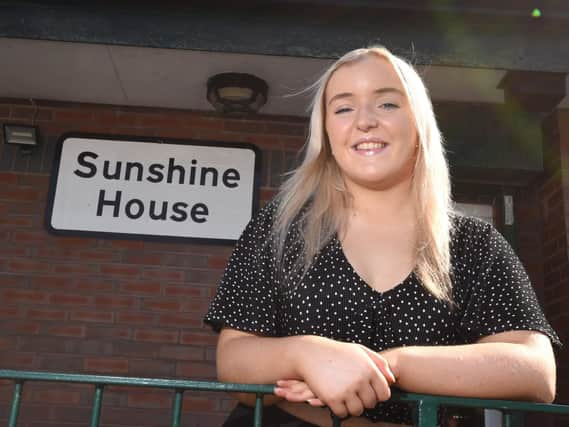Wigan student impresses national charity with essay on life in lockdown


Her reflections on moving back to the borough when the university closed and then helping out on the front line and seeing the desperate situations cash-strapped families in the borough face, have made a big impact on The Orwell Foundation.
The charity, which also runs The Orwell Youth Prize for young political writers, has an association with Wigan due to George Orwell’s links to the town and journalist and author Stephen Armstrong asked Sunshine House chief officer Barbara Nettleton if there were any young Wiganers who wanted to write about their experiences of the pandemic.
Advertisement
Hide AdAdvertisement
Hide AdCloe’s work will now be publicised on The Orwell Foundation’s website.
The 20-year-old former student of The Deanery CE High School and Winstnley College said: “When I came home from uni I wasn’t doing anything so I said I would help out at Sunshine House.
“I’ve been helping there since I was 16 because my mum is the manager.
“It has been very busy and difficult during the pandemic but it’s a really good thing they are doing.
Advertisement
Hide AdAdvertisement
Hide Ad“It has been good to do something to help rather than just sitting at home.”
In her essay Cloe, who is originally from Hindley but now lives in Atherton, writes in a hard-hitting way about the tough circumstances of some of the Wellington Street hub’s service users.
She described delivery drivers taking food parcels to families with young children whose shelves were bare and how elderly people shielding and unable to do their shopping required support.
She also spoke of her shock at the sheer numbers of people referred to Sunshine House because they could not afford food.
Advertisement
Hide AdAdvertisement
Hide AdShe described the levels of deprivation parts of Scholes and Ince face and how the council has had to shoulder enormous budget cuts throughout the years of austerity.
She also said she did not think the travails of working-class communities were as well known as they should be, admitting that she had not been aware of the extent of poverty locally until beginning to volunteer.
In her essay Cloe wrote: “Some days it is difficult to comprehend how much help is really needed and how far we are from getting such help to all who need it.
“In our future we must aspire to a time where no one is allowed to go to bed hungry. Small community centres do not have the resources to tackle this alone. The struggle against deprivation is largely on a local level and the issue is seldom raised nationally.
Advertisement
Hide AdAdvertisement
Hide Ad“Those not exposed to it are allowed to remain ignorant – although lockdown has started to change this to some extent.
“Britain’s community centres have for too long been alone on the front line in the fight against deprivation in towns such as Wigan.
“It would be refreshing for Sunshine House to be free to flourish in the arts or community creativity if the need to fight poverty in their community was alleviated.
“The deprivation in my town is deeply saddening, and I want a future where this is no longer ignored.”
Advertisement
Hide AdAdvertisement
Hide AdCloe also wrote about the increased community spirit as people have come together to support each other through the pandemic, and expressed her hope that this continues in the future and is not cast aside as life returns to something like normal.
The Orwell Foundation is now sharing Cloe’s essay with Wigan MP Lisa Nandy.
Cloe says she is currently considering a career in journalism once her studies are over.